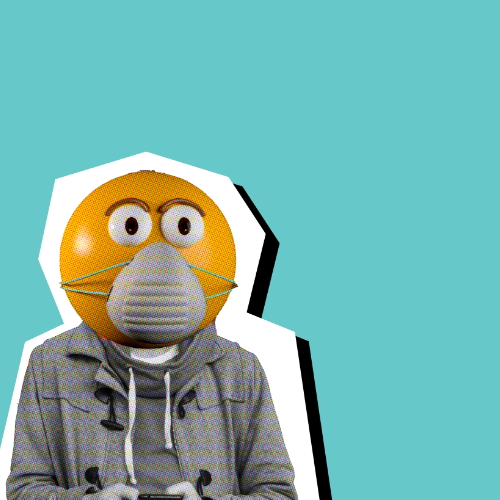And for now at least, it is. Last week, Mark Zuckerberg told reporters that Facebook services are stretched well beyond the norm. Voice and video calls on WhatsApp and Facebook Messenger are at more than double their usual level.
As lockdown and isolation become the new reality, Coronavirus has, perhaps predictably, sparked ‘a huge jump’ in social media’s main channels.
But perhaps it’s not for long. Anecdotal evidence suggests people are starting to scale down on traditional social media.
First wave of deactivations?
Self-confessed social media junkie, Kristian Lovell, has decided enough is enough. For Kristian, Coronavirus on social media became ‘all-consuming’ - so it was time to log-off.
“I’m usually on social media for probably an hour and a half every day,” says the 42-year-old support worker. “I like to debate so I’m a nightmare during election time.”
“But I know it can affect my mental health at the best of times. Now I’m facing 12 weeks at home, I don’t need social media’s baggage right now - I’d rather be productive.”
Before deactivating, Kristian said the content on his social feeds was a mix of scaremongering, insight, positivity … and frustrating messages from those still downplaying Coronavirus and flouting its measures.
Fraser Millar, another once ‘avid’ social media user, can relate. “I’d log on, the Coronavirus rebels and experience new levels of anger and anxiety,” says the 31-year old environment lecturer. “Past a certain point it’s self-torture.”
“I get news from credible sources so I don’t need or want social media’s half-truths and conspiracy theories. Now that we’re basically in lockdown, I also don’t need to see people’s posts about sitting at home. I’m sitting at home.
“I think we need to focus on our mental health as we ride this thing out.”
Misinformation and mental health
Several news outlet concur and have urged citizens to limit their exposure to social media a) to preserve mental health and b) to swerve the misinformation that’s spreading like wildfire.
Not only has the BBC been pumping out videos dispelling popular social media myths, Stephen Fry, actor and president of mental health charity Mind, appeared on Andrew Marr to say that he too has “turned it all off.”
“There’s so much noise,” said Fry, “but the fact is, if you listen to the scientific advisers, they almost always begin every sentence with ‘we think’, ‘it’s possible’, ‘maybe’, ‘perhaps’, ‘we don’t know but…’
“That’s how experts talk; the people who really understand.” So with the experts unsure, Fry says we need to “blank out” anyone who claims to have extra insight.
Emotional contact vs emotive content
Reconciling social media’s positives (connection and communication) with its negatives (social pressure and misinformation) has never been straightforward. As we stare down a health pandemic unlike any other, the social media masses have already found targets and lightning rods for their anger – profiteers, stockpilers, and US students on Spring Break, for example.
But in these, word of the moment, unprecedented times, there may well be an upper limit on how much more anger and negativity we can give and take. There are economic pressures, spatial pressures and practical pressures on each and every one of us. The emotional toll Coronavirus is taking is hard to overstate.
Like Kristian and Fraser, others may soon reach a point where they don’t want to invite extra angst and anxiety in. They’re not rejecting the technology, it’s more like establishing productive and positive connections.
Kristian says he and his dad are enjoying playing virtual Scrabble together, while Fraser is among the millions worldwide who now use Houseparty to facilitate family get-togethers.
And beyond the tidal wave of new educational and feelgood videos born of the Corona crisis, families and friends are increasingly taking to platforms like Zoom and Google Hangouts to live out private dinner parties, drinks, book groups and discussion groups.
It’s worth noting that some privacy concerns have surfaced around the likes of Houseparty and Zoom. Once again, it pays to understand exactly what you’re signing up to and make a judgement. As with all social media, certain rules of engagement apply.
Still, as the situation evolves, perhaps a new social (media) order is afoot, one with more emphasis on the social and less on the media. Before all the fake news and data-trading, isn’t that what it was all about?
Brought to you by our partner, LifeSearch



